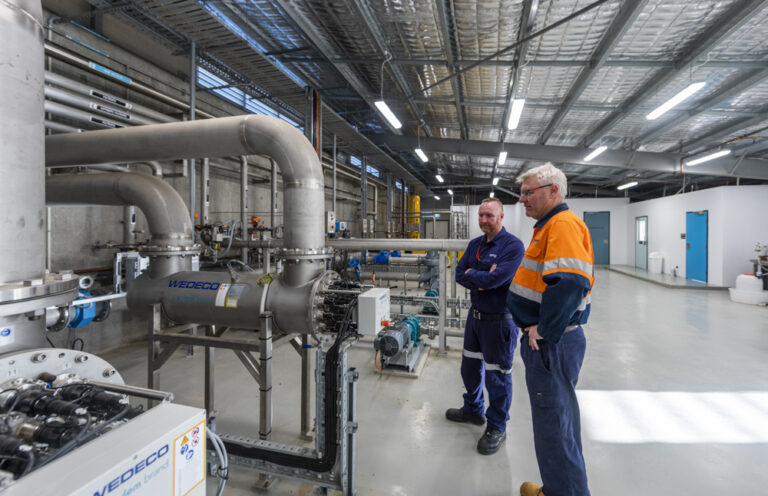Serco Group plc (LON:SRP), the international service company, has been awarded contracts by the UK Home Office Visas and Immigration department for two regions of the new Asylum Accommodation and Support Services Contract (AASC), being the North West of England and the Midlands & East of England. For the two regions in aggregate the total contract value is estimated to be around £1.9bn over a 10-year term and this value will be initially added to our order book; the final contract value will reflect the actual Service User volumes and indexation adjustments over the life of the contract.
AASC is the successor framework for the current COMPASS (Commercial and Operational Managers Procuring of Asylum Support Services) contracts, which were awarded in 2012. Of the current COMPASS regions, Serco is responsible for two: North West of England and Scotland & Northern Ireland, and we are currently looking after some 17,000 asylum seekers.
Under AASC, Serco will be responsible for the provision of properties for initial and dispersed accommodation requirements, for transportation to and from properties, and for a range of other services to support the welfare of asylum seekers. In the two regions for which Serco has been selected, there are currently approximately 20,000 asylum seekers living in more than 5,000 properties. Serco will ensure all accommodation is safe and habitable and in accordance with the Decent Homes Standard. We will use our extensive experience of working with the communities, local authorities, suppliers and other specialist organisations to achieve strong partnerships and excellent service delivery.
While the core service lines are similar between the COMPASS and AASC contracts, there have been a number of improvements for Service Users and changes to contract terms, including: the introduction of volume caps and certain other protections for surge events; greater graduation of volume charging bands; improved inflation protection; and mechanisms for handling certain other risk scenarios and change events.
In 2020, the first full financial year of Serco’s new AASC contracts, the annual revenue is anticipated to be approximately £150m, which compares to revenue in 2018 on our COMPASS contracts of approximately £70m. The COMPASS contracts incurred a loss of approximately £15m in 2018, which has been offset by utilisation of an Onerous Contract Provision (OCP). In 2019, the new AASC contracts are expected to have a negligible effect on profitability as mobilisation and transition costs will be expensed as they are incurred in the year, but in 2020 and thereafter we expect the AASC contracts to be materially positive to both profitability and cash flow.
Commenting on the award of the contracts to Serco, Rupert Soames, Serco Group Chief Executive, said: “We are very pleased to have been awarded contracts for two large regions by the Home Office; together these will be the largest contracts by value ever awarded to Serco. Over the last six years, Serco has cared for many tens of thousands of people whilst their asylum claims were being processed, and I am proud of the extraordinary commitment, skill and care Serco colleagues have shown whilst looking after some of the most vulnerable people in the UK. This award vindicates our decision to continue to invest in building our capability and expertise in what is an extremely sensitive, complex and nationally important area of public service delivery.”
Notes on accounting treatment.
Property costs represent a significant proportion of the AASC contract cost base, and under IFRS16 (the new accounting standard for leases effective from 1 January 2019) the treatment of property leases is materially different from previous practice. The depreciation cost of the newly recognised ‘right of use’ lease asset will be charged to Underlying Trading Profit (UTP), whilst the ‘interest cost’ of the newly recognised lease liability will be charged to Net Finance Costs rather than UTP. Furthermore, under IFRS16, depreciation is charged on a straight-line basis, whereas the interest element is calculated on a reducing balance basis which means that the interest cost will be higher in the early years of a lease and lower in the later years of a lease. As a consequence, Profit Before Tax is lower in the early years and higher in the later years for a contract that has leases of matching length; the Profit Before Tax of the AASC contracts will therefore start lower in year 1 and end higher in year 10, though the progress of profitability in each contract year in between is unlikely to be linear as this will be determined by the actual achieved mix in length of property leases, as these are expected to be shorter than 10 years. The increases to UTP and Net Finance Costs that result from IFRS16 fully net out over the life of each lease, and hence over the life of the AASC contracts. IFRS16 has no cash flow impact, and there is no covenant impact with the Group’s financing facilities continuing to be calculated under the prior standard, IAS17. As with the contract value in revenue terms, the profitability in each year will also reflect the actual Service User volumes, together with the levels of cost inflation and indexation adjustments.









































